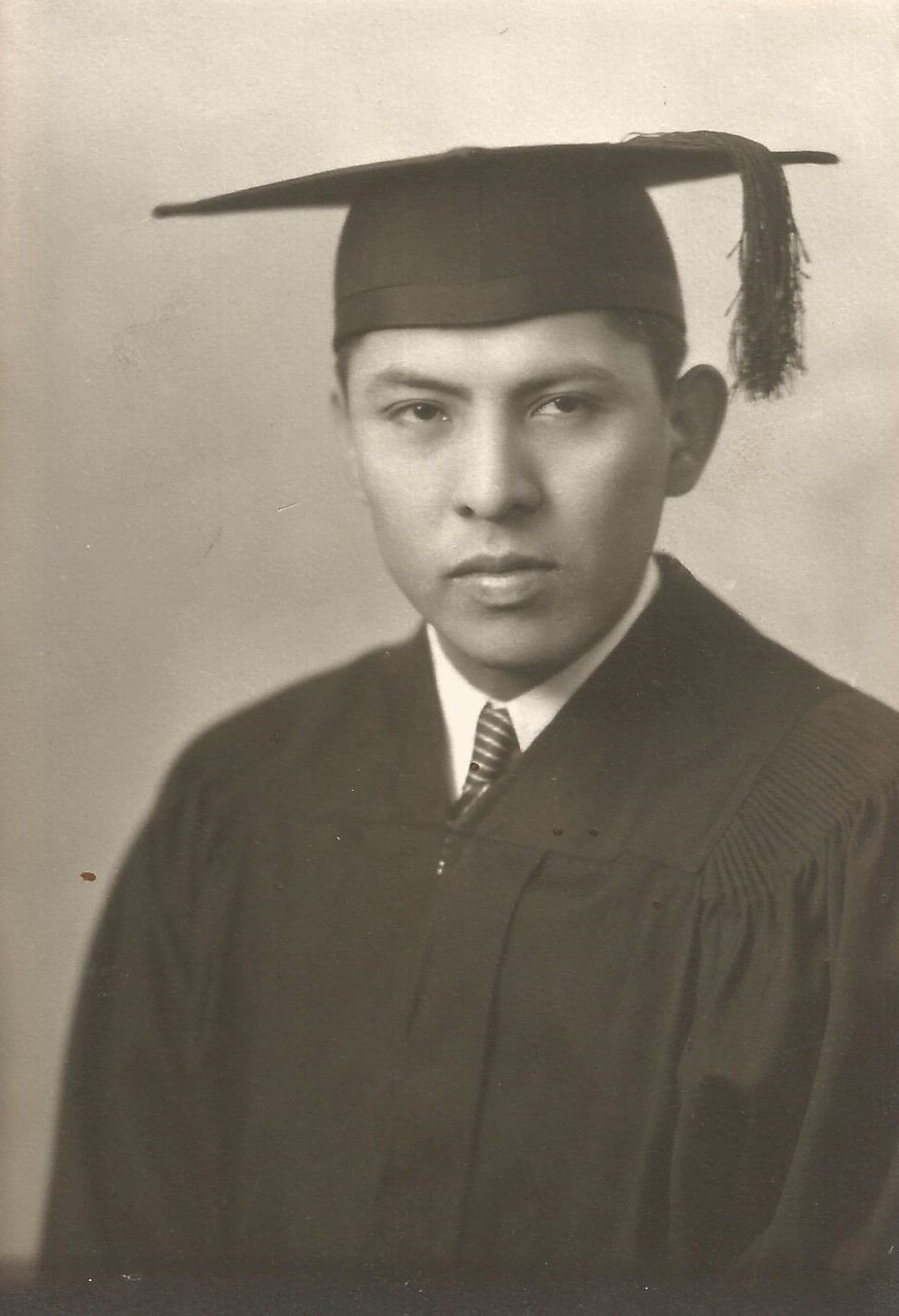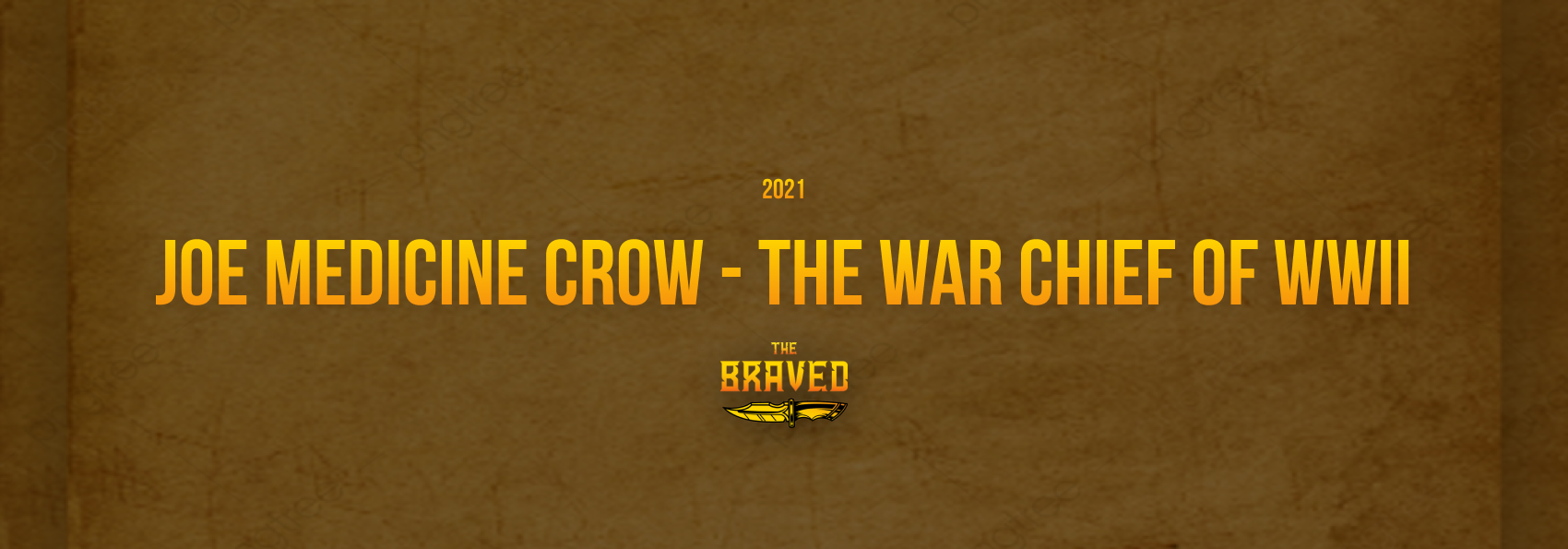Few titles sound as straight-up badass as war chief of the Crow Nation, and would you believe that a Native American claimed this title during the Second World War? This is the story of Joe Medicine Crow, a warrior, writer, historian, and anthropologist rolled into one.

Before World War II
Medicine Crow was born on Montana’s Crow Indian Reservation in 1913. His mother was named Amy Yellowtail, and his father, Leo, became a war chief at just 22. He grew up listening to his step-grandfather White Man Runs Him tell stories about the 1876 Battle of the Little Bighorn. In this conflict, a combined force of Plains Indians defeated the US 7th Cavalry Regiment, led by General George Armstrong Custer. White Man Runs Him served as one of Custer’s Crow scouts. Hearing tales such as this had a significant impact on Medicine Crow’s life.
After gaining an Associate of Arts degree in 1936, he studied sociology and psychology at college. In 1939, he finished his masters in anthropology, studying at the University of Southern California. He wrote his thesis on the subject of European contact with the Crow Indians. In Medicine Crow’s words, “I wanted to prove to people, not only to Indian people but people in general, that an Indian is capable of becoming a good college student.” In the same year that he earned his master’s degree, Hitler invaded Poland, sparking World War II. He was in the middle of his PhD when the Japanese bombed Pearl Harbor and brought the US into the war. In support of the American war effort, he worked in the naval shipyards in Bremerton, Washington, for a time. In 1943, he signed on with the US Army.
Medicine Crow vs the Nazis
Serving as a scout in the US 103rd Infantry Division, Medicine Crow wore Crow Tribe war paint under his uniform and a yellow eagle feather under his helmet. He said, “We were a war-faring people. … I had a legacy to live up to.” And live up to it he did. Leading a war party, he stole fifty horses from a Nazi SS camp, singing a traditional Crow song as he bolted away with his loot. He also captured a German village. On another occasion, he bumped into a German soldier while out on a scouting mission. Rather than blasting the soldier at point-blank range, he disarmed him and then locked his hands around his throat.
He was prepared to kill the German when the German shouted, “Mama.” With that, Medicine Crow let him go. “I swung my rifle to knock his rifle off his hands,” said Medicine Crow. “All I had to do was pull the trigger.”

After the war, Medicine Crow told stories about his military service in Europe. In response, his elders told him that he had, by chance, “completed the four deeds” a Crow needed to complete to become a war chief. These included touching an enemy without killing him, taking an enemy’s weapon, leading a successful war party, and stealing an enemy’s horse. The elders declared Medicine Crow a war chief of the Crow Tribe.
Medicine Crow – Historian and Anthropologist
In 1948, Medicine Crow became a tribal historian and anthropologist. His job was to protect and archive the memories of the Crow Tribe.
He wrote a number of books on the subject. He also worked for the Burea of Indian Affairs for a time, lectured at various universities and museums, and wrote scripts for reenactments of the Battle of Little Big Horn. In 2009, President Barack Obama presented Medicine Crow with the Presidential Medal of Freedom. In Obama’s words, “I suspect his greatest honour was one he earned from his people: the title of war chief – the last Crow to hold that distinction.” Medicine Crow lived to the ripe old age of 102, perishing in April 2016.
